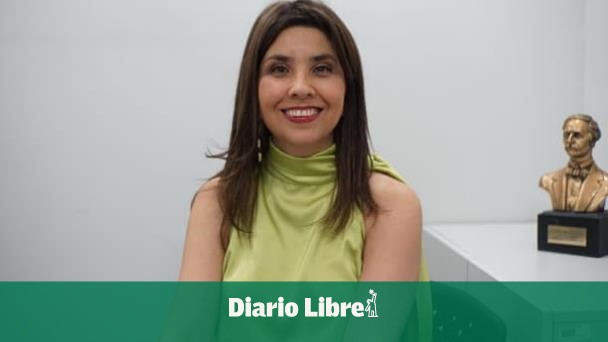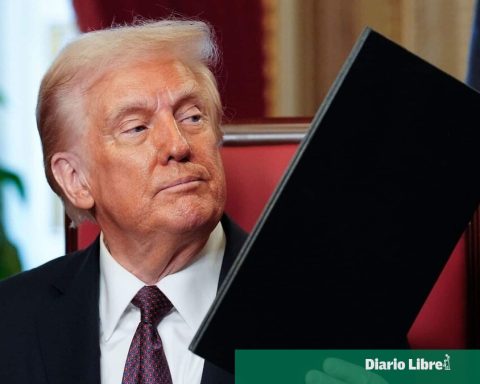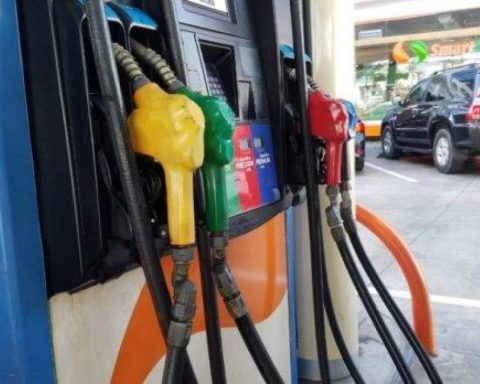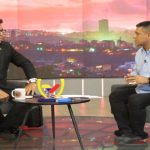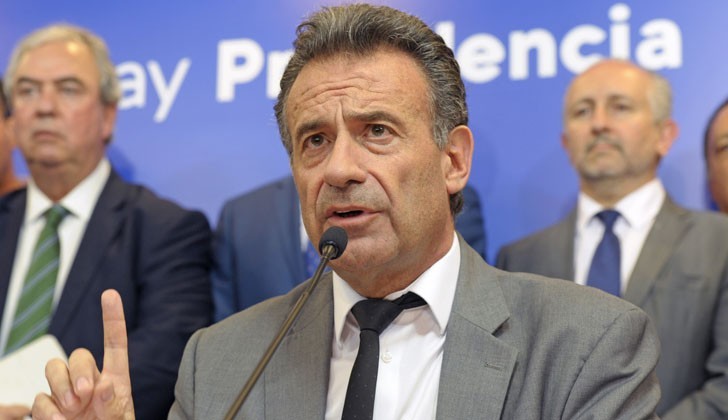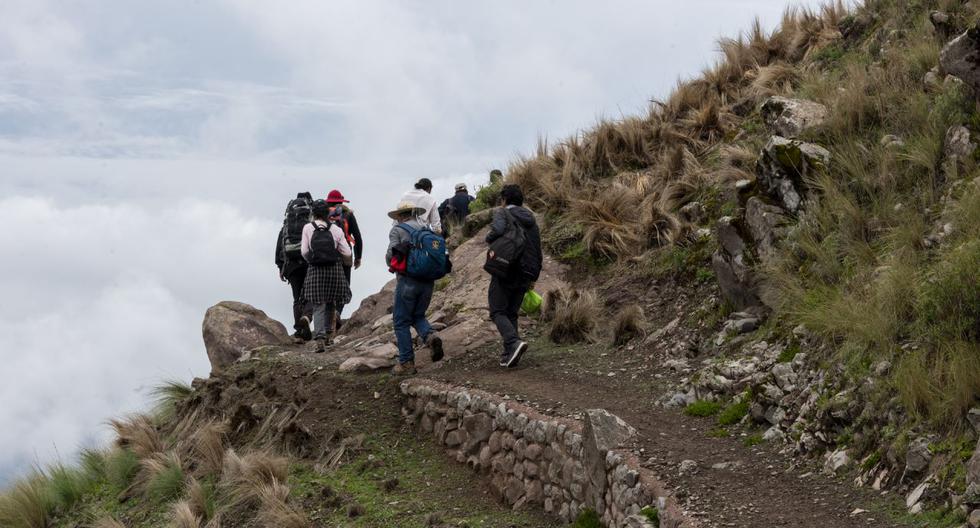María Victoria Ángulo, who was Minister of Education from Colombia during the period 2018-2022 visited the Dominican Republic invited by Acción Empresarial for the Education (EDUCA), with the aim of sharing their experiences and lessons learned with the educational community and system actors from the public and private sectors.
He spoke with Diario Libre about the recovery of the learning post pandemic, the performance of teachers, early literacy, the integration of parents into the teaching-learning process and the use of technology in education. education.
International organizations have warned about the loss of learning as a result of the COVID-19 pandemic. With your extensive experience, what do you recommend to overcome this situation?
I believe that the first thing is to have good diagnostic, academic, and socio-emotional information on children and young people to understand the impact of the pandemic. But be careful with this, I am not saying that having the results of the State tests of the last grade is valid because this is an indicator of a cohort that is going to enter the education superior.
It is very important, Minister Ángel Hernández and Deputy Minister Ancell Scheker told me that they had some diagnostic evaluation pilots. I hope that this is not just piloting, but that it is applied to the entire system, especially since they are not for ranking or to give you a news picture, that is so that the teacher can understand how each student is doing and achieve a good pedagogical agreement with his rector (director), with his fellow teachers and say what we are going to change, how we use all the material we work on in the pandemic, what contribution and support we need from the State; because every day the training of teachers, more than just being an offer from the State, also has to come a bit from each one having their portfolio of evidence and telling us definitively in this area of reading, that is where the Ministry must arrive.
You tell me about those recommendations from the multilaterals and they go through what I tell you, diagnostic tests, strengthening strategies and support for teachers at all times. They talk to us about a determined policy for mental health and socio-emotional competencies, they also talk to us about a leadership of what we know as rectors (directors), because they are the leaders of the moment and the pedagogical transformation and they talk to us about not separating families but empowering that rapprochement that took place during the pandemic as an asset for the educational system.
The pandemic also put the performance of teachers to the test, since many in practice did not handle technological tools and here their preparation in the curricular areas in which they work has also been questioned. Does the same happen in Latin America?
There is usually a debate as to whether this is solved only with post-gradual training or if it is only with continuous training and I believe, looking at the evidence, that there has to be a combination of the two. Yesterday (Wednesday) I gave you examples of how sometimes we looked at case studies of institutions that had teachers who had gone through the master’s and doctorate processes and the quality results did not change. So that located training that is sometimes seen as a short course in intensity can be very valuable and today the universities, I know it is the same here in the Dominican Republic, every day they are making an effort to make these short courses also have an equivalence in academic credits and the teacher can see that it is not a wasted effort, but that added to many training processes can lead to a postgraduate degree.
I believe that not only for teachers, but for any area of knowledge today, skill certifications and on-site preparation make the difference between one and other professionals and much more in the education where they are managing intangibles such as emotions, knowledge and now that technology is breaking in with such force, artificial intelligence with that creative and innovative way of being able to live with this scenario, but to keep the children’s motivation active to learn and that is quite challenging.
How do you evaluate the use of technology as a teaching tool?
Look even at the titles when you spoke 10 or 15 years ago they could talk about school textbook policies and now they talk about learning materials where you can find all kinds of digital resources, printed material, didactic material, elements for the preparation of material in class, when you talk about active learning.
Well, then I think that there is a huge opportunity for children to have a lot of opportunity to have different contents and for something that Darwin Caraballo mentioned in a previous interview, and it is more than answering all the questions, knowing how to ask what the questions are because today we have a lot of access to different knowledge, contents and I think that this analytical capacity, this capacity to formulate how to be critical in front of the different topics and have these scientific, pedagogical, academic competences, because these interaction scenarios that take place in Classroom.
In the Dominican Republic, the government is making an investment in initial education, since studies show that those from 1 to 5 years old learn to read and write despite having a year in school. Does the same happen in other Latin American countries?
I believe that, in Latin America, with the exception of Uruguay and Chile, which have the best results, we have a behavior in matters of literacy skills that still leaves us with many challenges. There are still many children who, at the age that they should learn to read, to have an interpretation, do not reach that result and from there, many potholes arise regarding facts of learning and many other skills. So that priority that the Ministry of Education It is very important, we must not take it as a common fact because it would sound something like elemental, no, but it is infinitely transformative to get there.
And the other thing you mentioned is the early childhood issue that María Walesca commented on yesterday and also Vice Minister Scheker: it is a priority of President Luis Abinader, from what I could hear, and I think that this is on the right track because it is the best investment and the most significant stage and where our systems have fallen short in covering.
We managed to reach two million children fully cared for in early childhood in Colombia and we generated a rural care model, because I believe that the innovations are also valid for early childhood and we began a first measurement of quality because early childhood is not just guarantee these attentions, but rather the achievements of the child through cognitive, nutritional, care issues, etc. So it is a very good priority that the government has put this issue on the agenda.
School textbooks are under debate in the Dominican Republic. The Ministry of Education is preparing its own texts, apart from publishers. What is the modality used in Colombia?
Colombia has had a program for 12 years called “Todos a aprender”, created by one of the ministers who preceded me and which had the objective of combining, because buying books, just buying books does not generate the effect, that must be be clear. It makes a difference if it is accompanied by a program of teacher trainingof a network of tutorials, of improvement of the conditions in the schools, so that everything together favors the learningwhich is proven to help of course.
Brazil is one of the experiences in Latin America where a very strong investment in texts was made a few years ago and this obviously gives children freedom of learning and the possibility at home to consolidate their knowledge.
We do not produce texts, in the case of history, we particularly convened the Academy of History and it was one more issue on the occasion of the bicentennial celebration that it was important for historians to work on leaving the country with more content because there is that concern of the society that our children and young people do not know our history, the pillars of democracy, etc.
We work on this with that commission, but there is a plural offer of texts where there is not just one, but they are made, obviously Colombia has a public instance called “Colombia buys efficiently” which is like public purchases of everything, you can buy connectivity agreements, school textbooks and materials. And you will tell me what the difference is compared to buying it in another process, since they make a price framework agreement, that is to say that they select by quality and by price and the Ministry already has limits and can choose the best within what is presents and based on this in the “Todos a aprender” program we focus on texts on reading, mathematics, socio-emotional skills, English.
With English, that example was interesting, but it took a long time, I did not have the position of minister, but I worked in a foundation that is like Educa, but in Colombia, we made an agreement with the Ministry of Education, the foundation and the British Council and it was a nice exercise, it took a couple of years and it was writing all the English texts with British experts, obviously, but with the Colombian reality. This type of exercise requires that time, that expertise was validated and it is a program that today has free texts for the entire system.
And about the importance of school feeding programs…
The school feeding It is quite a challenge in the Latin American agendas. Do not confuse that school feeding It is a nutrition program, it is a food supplement program, that is, there must be other policies on nutritional issues in the country and it seeks to reduce desertion. It seeks to encourage children and families to be encouraged to attend school.
It is a program that in all countries has had threats, of corruption, in quality, threats in having the safety conditions that have to do with the food having gone through all the cold chains.
I can tell you that I had to fight many corruption issues, finally we managed to create an agency that is the Special Unit for school feedingThis agency does not contract, but rather designs the policy, does the audits, establishes the technical standards, works with the Ministry of Health, with the Ministry of Agriculture, promotes local purchases and you cannot imagine everything that is around, the positive if done well it can impact a food program, even with local purchases and rural purchases.
This agency began operating just a month before the pandemic and it had the challenge of providing food at home during the pandemic and then we resumed feeding again a year and a half ago and we have three challenges to reach 100% the country right now is in 76% of children attended by mixing food and canteens that are inside the schools and that have the food preparation service, transported food when there are no infrastructure conditions and school snacks, which is when there is not a full day and only takes a snack choosing a nutritional contribution close to 30 percent.
I would tell you from experience that the important thing is not just to deliver it, it is the first anguish, the second is that it be carried out with transparency, but the third is quality and I think that we Latin American countries have to continue working hard there because this impacts habits of healthy life.
This also has to do with working with parents, it has to do with understanding the customs of each region. It is a broad topic, beyond hiring, but it is exciting to understand how food is linked to many cognitive, emotional things and that the school also teaches an interesting work that talks about the environment, recycling and healthy habits.
